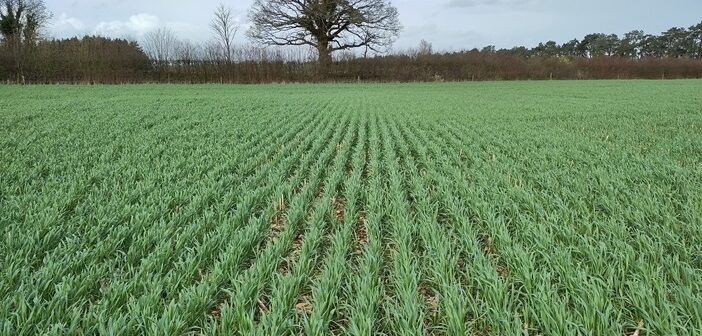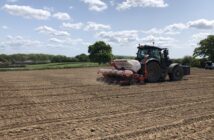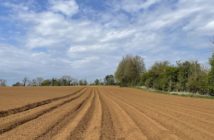A new winter-active and highly vigorous variety of triticale offers arable farmers a reliable and hardy cover crop option this autumn.
Bred in New Zealand, T101 Wintermax has a recommended drilling window of mid-September through to mid-October for optimum spring production and has, in field trials, demonstrated strong nutrient use efficiency qualities.
“T101 Wintermax is a later drilling option than many traditional cover crops and would be ideal following maize or potatoes,” says Francis Dunne of FD Seeds. “It establishes quickly and is extremely winter hardy, so has good potential to suppress pernicious weeds, and its vigorous root development helps to improve soil structure. It is a good nutrient scavenger, so there is great scope for minimising leaching over the winter months.
“T101 Wintermax produces high biomass, showing a significant uplift in dry matter production on forage rye in UK field trials, so there is good potential for an additional income from winter or spring grazing. Alternatively, the crop could be used to grow biomass for early spring green manuring.
“For farmers looking to fulfil a SAM2 commitment within an SFI agreement, T101 Wintermax can be combined with winter vetch or other fast-establishing species to create a valuable overwinter multi-species cover crop, even when drilled in early October.”
For arable farmers with livestock, T101 Wintermax can be grazed, ideally between late February and mid-April, with earlier drilled crops, offering the potential for late autumn grazing. Alternatively, it could be grown as a very early silage crop, cut in late April, potentially ahead of drilling maize or other late-sown spring crops.
T101 Wintermax forage triticale is available from seed merchants throughout the UK.




